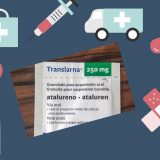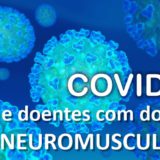Células tronco embrionárias em pacientes com distrofia muscular de Duchenne
Ucrânia – Vinte e sete pacientes com distrofia muscular de Duchenne, com idades variando de 4 a 27 anos receberam tratamento com um poll de células embrionárias retiradas de fetos sadios. A avaliação realizada 6 meses após o tratamento demosntrou uma melhora funcional e da qualidade de vida destes pacientes. Não há detalhes da qualtidade de células, vias de administração e a avaliação foi feita por um período muito curto, sem demonstrar que as células estavam presentes nos músculos.
O resumo em inglês pode ser lido abaixo:
(Annual Meeting American Neurological Association 2012) Fetal Stem Cells in Duchenne’s Muscular Dystrophy (DMD)
Nataliia S. Sych, Mariya O. Klunnyk, Olena V. Ivankova and Iryna G. Matiyaschuk; Kiev, Ukraine
Though modern methods can prolong life expectancy of DMD patients, but fetal stem cell therapy (FSCT) can be more promising. Goal of research was to study FSC efficacy in integrated treatment of DMD. Study included 27 male DMD patients aging 4-27. Diagnosis was confirmed clinically and on the basis of test results (high CPK and LDH), EMG, genetic testing, muscle biopsy. Functional capacity of patients was assessed on Total Functional Grade (TFG) scale, quality of life – on SF-36. Patients were examined before stem cell therapy treatment and 6 months after it. All patients underwent transplantation of hematopoietic and non-hematopoietic mesenchymal and ectodermal FSC harvested from germ layers of internal organs of 4-8 weeks old fetuses. FSCT resulted in improvements on TFG – from 8,5760,66 before the treatment to 7,7560,54 after the treatment, p<0,05. 0,5-point improvement was reported in 85,19% cases, 1-point – in 11,11%, and 1,5-point in 3,7%. FSCT also resulted in physical and psychoemotional improvement, higher self-esteem and spiritual realization. FSCT improved functional capacity and life quality of DMD patients, which proves that this method is very promising and should be researched and advanced.



